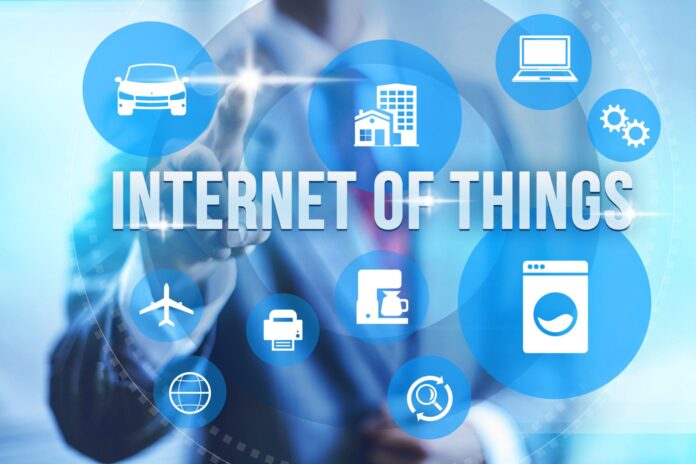A significant minority of companies now claim to run their entire business on the internet of things
Some of the enterprise pioneers of the internet of things (IoT) are trying to race ahead of their peers in the hope that this disruptive technology will drive a competitive shake out. That is one of the conclusions you can draw from a global survey of companies by the Vodafone Group, a leading mobile operator with assets in Europe, Africa and Asia. Even allowing for the positive spin you would expect from such a survey, some of the respondents have given the IoT an amazingly warm embrace. For example, 37% of the businesses that have adopted the IoT say they now “run their entire business on IoT”.
Vodafone says it interviewed 1,096 “carefully selected” respondents across 17 countries in all major regions and sectors of the economy – retail, manufacturing, energy and utilities, healthcare, transport and logistics, automotive, consumer electronics, and industry. Some 28% of the businesses surveyed said they have live IoT projects, with a further 35% less than a year away from launch.
Some of the respondents relayed a real sense of urgency and impetus. For example, one Spain-based utilities company said it was “boiling” with IoT initiatives. It told Vodafone: “IoT technology is universal in this company and definitely not an ICT prerogative; we’re open to all types of suggestions. We have several ‘tele’ projects such as tele-measurement or smart metering, we’re looking at smart security cameras to replace security guards, and we have a pilot scheme of electric cars that we can fully manage remotely.”
While such positive sentiments will be music to the ears of the strategists at leading telcos, the IoT isn’t yet moving the financial needle. For major telcos, such as Vodafone, the revenues generated by the IoT are still very small. Verizon, for example, reported this week that its IoT revenues grew 25% year-on-year in the second quarter to approximately $205 million. That is less than 1% of its total revenues, which fell 3.5% on a like-for-like basis in the quarter.
IoT drives differentiation
Still, it is clear that manufacturers across the economy now regard connectivity as a potentially strong source of differentiation. One Germany-based consumer electronics company told Vodafone that the IoT has already given it a major financial boost: “We did have expectations, but did not expect them to be met so quickly. It was like an awakening, because the project was implemented so quickly. A quick ROI appeared, both perceived, but also in numbers. We were able to increase sales by 25%.”
In fact, the survey suggests that Germany’s renowned manufacturer sector sees the IoT as a way to maintain its reputation for developing high-tech, high-quality products that are superior to those produced in lower-cost manufacturing centres. For example, a Germany-based premium car manufacturer enthused about how connectivity is changing many different aspects of its vehicles: “We already have 24 IoT-driven features across our cars, and I keep saying I have enough ideas for the next 5–10 years; I just need to implement them in the car!”
This approach also has big ramifications for manufacturers’ business models. “The major aspect of IoT is that instead of just selling the car, you sell subscriptions to additional services to enable more features in the car,” the car manufacturer added. “Your revenue stream is extended into the future — but you have to prove yourself on a monthly basis, because customers can cancel if they see no added value. That is a new setup for the car industry.” It will be the resolution of these kinds of commercial issues, rather than technical barriers, that are likely to determine the extent to which the IoT disrupts the established order in manufacturing sectors, such as automotive, household appliances and consumer electronics.
Data-driven change
The survey also revealed a growing awareness among manufacturers that connectivity could enable them to offer a very broad range of services. For example, the data collected by a moving vehicle can be put to all kinds of uses. “We have just started to appreciate that if we could combine all that data, we’d have a complete understanding of the world at our fingertips, would know all road conditions all over the world, where traffic jams are, where parking spaces are for instance,” the Germany-based premium car manufacturer said. “The question is, which of that data is the most valuable to us?”
In a similar vein, a large US-based electronics manufacturer noted how analysing and applying data at scale can lead to the development of far more reliable and durable products. It told Vodafone: “It’s not just about predicting the failure of a particular asset. You want to be able to say, if there’s a part failure, show me a list of the millions of assets out there that share the same part. Because of the data, you can use that information to prevent issues at a fleet-wide level. People can make better decisions; you can start to change your whole strategy.”
However, some respondents to the survey did strike a more skeptical note. One China-based retailer called for more hard evidence of the positive impact of the IoT: “The current issue is that many abstract concepts are flowing in the market,” it said. “If the IT industry can provide more sound and persuasive successful cases for our reference, I am sure that my boss would invest more and more in this area without any hesitation.”
Even so, the Vodafone survey makes it clear that the internet of things now has in-house evangelists within the enterprise space. And these evangelists are trying to prepare their companies for major IoT-driven disruption in the hope of surviving and thriving in the subsequent shake out.

